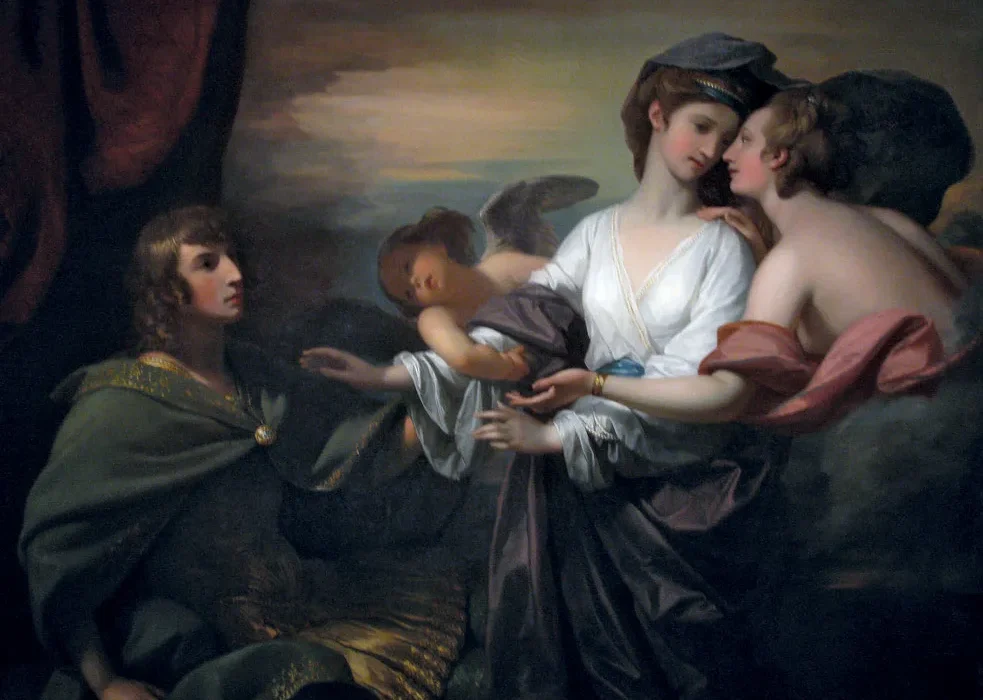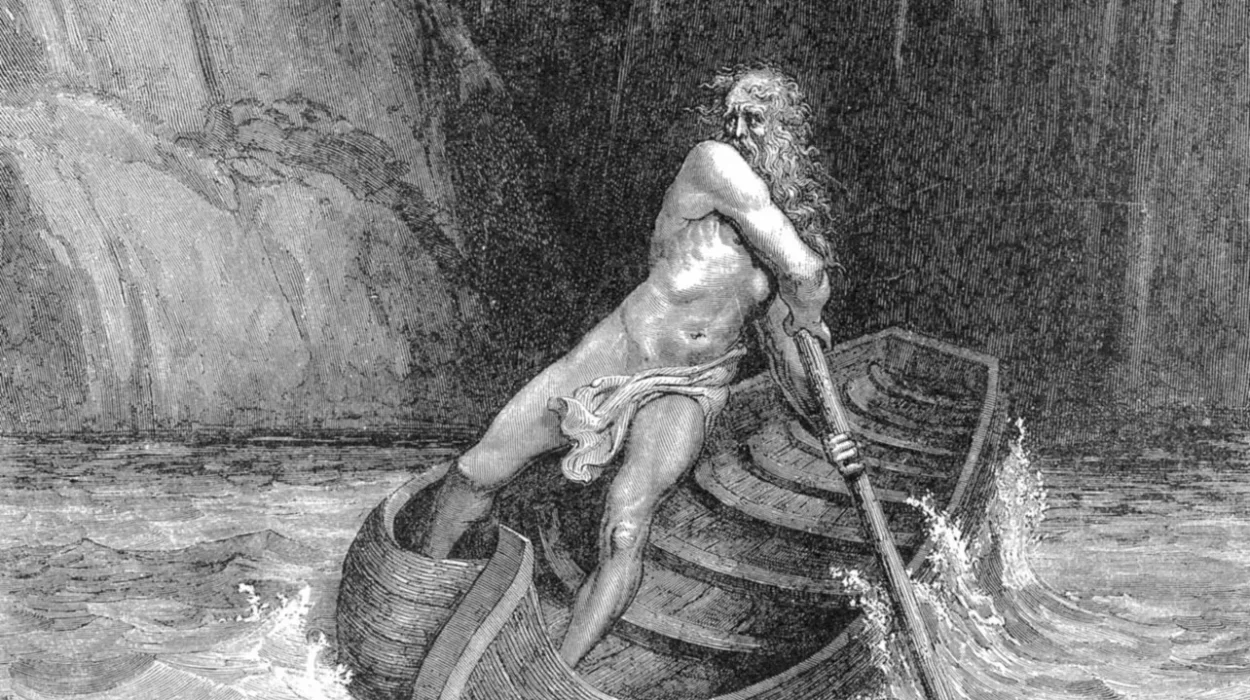Few figures in Greek mythology embody the weight of power, destiny, and tragedy as profoundly as Agamemnon, king of Mycenae. To speak of Agamemnon is to enter a world where gods and mortals intertwined, where honor demanded sacrifice, and where the price of glory was often paid in blood. His name carries with it the echo of war drums before the walls of Troy, the cries of betrayal within his own palace, and the haunting reminder that even the greatest kings are not immune to fate.
Agamemnon was not just a ruler; he was the supreme commander of the Greek armies during the Trojan War, the man whose authority brought together countless kingdoms under a single cause. Yet, the same pride and ambition that raised him to such heights also dragged him into ruin. His story is more than history or myth—it is a timeless meditation on leadership, sacrifice, and the destructive power of arrogance.
The House of Atreus: A Cursed Lineage
To understand Agamemnon, one must begin with the curse of the House of Atreus, a dynasty plagued by betrayal, revenge, and unspeakable crimes. His father, King Atreus of Mycenae, had embroiled the family in a cycle of bloodshed. In a feud with his brother Thyestes, Atreus committed an act of horror: he killed Thyestes’ children and served them to him at a feast. From that moment, the family was forever tainted by the wrath of the gods.
Agamemnon and his brother Menelaus grew up in this shadow, heirs to both power and a legacy of violence. Myth tells us that they were forced into exile when their uncle Thyestes briefly seized the throne. Eventually, they reclaimed Mycenae with the help of King Tyndareus of Sparta. This alliance would later lead to Agamemnon’s marriage to Clytemnestra, daughter of Tyndareus, and Menelaus’ marriage to Helen—whose abduction by Paris of Troy would ignite the greatest war of the age.
Agamemnon’s story cannot be separated from the curse that clung to his bloodline. Every triumph he achieved seemed destined to be shadowed by tragedy.
The Power of Mycenae
Agamemnon ruled Mycenae, one of the most powerful city-states in Greece during the late Bronze Age. Archaeology confirms that Mycenae was a center of wealth and military might, with its massive “Lion Gate” still standing today as a reminder of its grandeur.
As king, Agamemnon wielded immense influence. He was said to command vast armies and a fleet of ships unmatched by any other Greek ruler. This power made him the natural choice to lead the coalition of Greek states against Troy. But power, as Agamemnon’s story reveals, always comes with its own dangers.
The Call to War
The Trojan War did not begin with Agamemnon, but he became its central figure. The cause was the abduction—or perhaps elopement—of Helen of Sparta, the most beautiful woman in the world and wife of Menelaus. When Paris, prince of Troy, took Helen back to his city, Menelaus called upon the oath sworn by Helen’s former suitors: that they would all defend her chosen husband if she were ever wronged.
This oath brought together the greatest Greek heroes—Odysseus, Ajax, Diomedes, Nestor, and Achilles. Yet it was Agamemnon who emerged as the supreme commander. His authority was not uncontested, but his power and resources made him the undeniable leader of the expedition.
The fleet gathered at Aulis, but the winds refused to blow. The prophet Calchas declared that the goddess Artemis was angry and demanded a sacrifice. In a moment that would define his legacy, Agamemnon chose to sacrifice his own daughter, Iphigenia, to appease the goddess.
This act secured the winds, but it also sowed seeds of bitterness and vengeance—especially in his wife, Clytemnestra, who would never forgive him.
The Commander of the Greeks
At Troy, Agamemnon commanded with authority, but not without flaws. Ancient epics portray him as proud, imperious, and sometimes reckless. His leadership was tested constantly, not least by his fraught relationship with Achilles, the greatest warrior of the Greeks.
When a quarrel arose over a captive woman, Agamemnon insulted Achilles by taking away his prize, Briseis. This act of arrogance enraged Achilles, who withdrew from battle, nearly costing the Greeks their victory.
Agamemnon’s leadership reveals the tension between kingly authority and heroic pride, a central theme in Homer’s Iliad. He was a leader who could unite an army but often at the cost of alienating his greatest allies.
The Burden of Hubris
Greek tragedy often revolves around hubris—the excessive pride that invites downfall. For Agamemnon, hubris was not only a personal flaw but also a family inheritance. His decisions often carried the mark of arrogance: sacrificing his daughter, insulting Achilles, and claiming glory as his divine right.
The poet Aeschylus, in his play Agamemnon, emphasizes this fatal flaw. When Agamemnon returns victorious from Troy, he walks upon a carpet of purple robes, a gesture of godlike pride that angers the gods and sets the stage for his murder. To the Greeks, Agamemnon was a warning: even kings must bow before the limits set by fate and the divine.
The Return from Troy
After ten years of war, Agamemnon finally returned home in triumph. But his palace was not the sanctuary he expected. Clytemnestra, who had nursed her hatred for years over Iphigenia’s death, awaited him.
She had taken Aegisthus, Agamemnon’s cousin and enemy, as her lover. Together, they plotted revenge. As Agamemnon entered his palace, Clytemnestra greeted him with false warmth. Then, in the bath, she ensnared him in a net and struck him down with an axe. The great king who led the Greeks to victory was undone not on the battlefield but in his own home.
His death fulfilled the curse of the House of Atreus and set off another cycle of bloodshed, as his son Orestes would later avenge him by killing Clytemnestra.
Agamemnon in Tragedy and Epic
Agamemnon’s story echoes through Greek literature. In Homer’s Iliad, he is both commander and flawed man, a king whose authority is tested by his warriors. In Aeschylus’ Oresteia, he is the doomed monarch whose death begins a cycle of vengeance. To later poets and playwrights, Agamemnon symbolized the paradox of power: the ability to lead nations paired with the inability to escape fate.
His figure also became a cultural memory of the Trojan War itself. While Achilles represents the fury of battle and Odysseus the cunning of survival, Agamemnon represents the burden of command—the sacrifices, mistakes, and responsibilities of kingship.
Archaeology and the Historical Agamemnon
Was Agamemnon real? Archaeology provides tantalizing clues. The city of Mycenae was a powerful Bronze Age center, and in the 19th century, Heinrich Schliemann claimed to have found Agamemnon’s mask in a royal tomb. Though scholars now believe the mask predates the legendary king, it remains a powerful symbol of the connection between myth and history.
The Trojan War itself may also have roots in history. Excavations at the site of ancient Troy suggest a city that was destroyed around 1200 BCE, roughly matching the time frame of the myths. While Agamemnon as a historical individual remains uncertain, his story reflects real conflicts and struggles of the Late Bronze Age world.
The Legacy of Agamemnon
Agamemnon’s story endures because it captures the paradox of leadership. He was a king who could unite Greece but not his own household, a man who won glory abroad but lost his life at home. His tale is one of sacrifice and betrayal, power and downfall, fate and free will.
In literature, he stands as a tragic figure—a reminder that greatness often comes at an unbearable cost. In history and archaeology, he embodies the memory of a world where myth and reality blurred.
Agamemnon’s legacy is not that of a flawless hero but of a deeply human king, shaped by ambition, pride, and the shadow of destiny. His story continues to resonate because it asks timeless questions: What does it mean to lead? What price are we willing to pay for power? And can any man, no matter how great, escape the hand of fate?
The Eternal Lesson
The story of Agamemnon is more than myth. It is a mirror in which we see the struggles of leadership, the dangers of arrogance, and the inexorable pull of destiny. His life begins with the curse of his house, rises with the uniting of nations, peaks with the conquest of Troy, and ends with betrayal in his own palace.
And yet, his name lives on—not only in epic poems and tragic plays but in the collective memory of humanity. To speak of Agamemnon is to speak of the eternal drama of power and its price. He remains, even now, the king who led the Greeks to war, and whose story warns us that even the greatest victories can end in the deepest tragedies.






